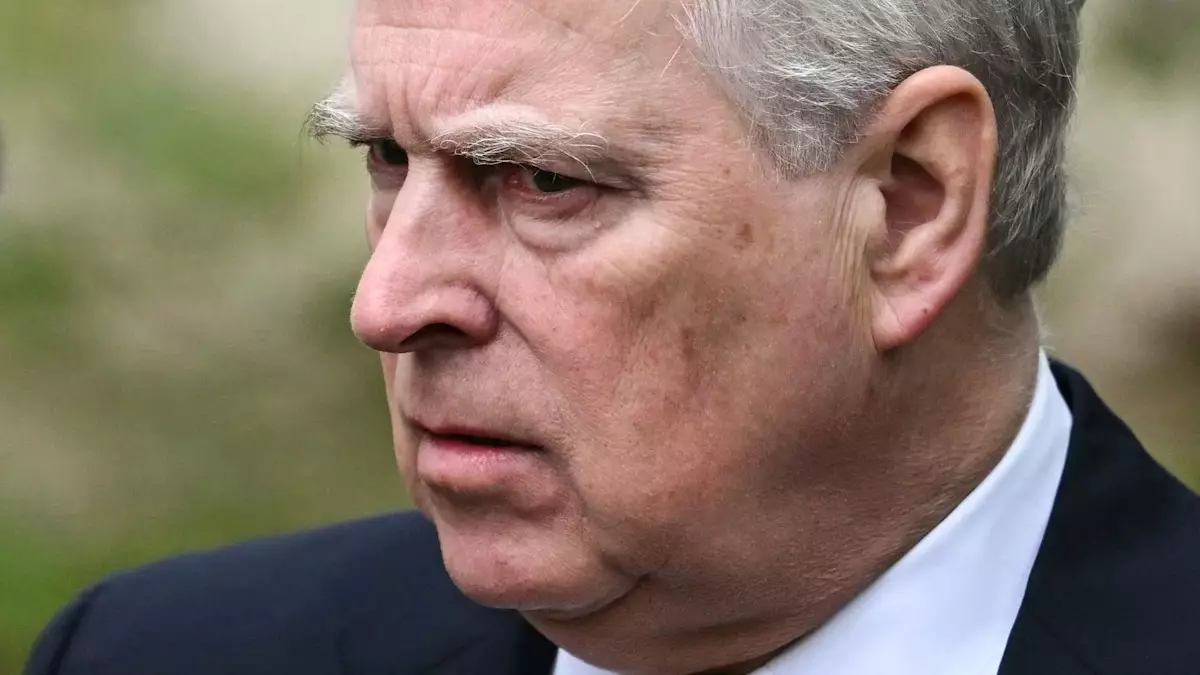In a significant development regarding national security, a Chinese businessman referred to only as H6 has been barred from entering the United Kingdom. This decision, made by the Home Office in March 2023, stems from concerns about H6’s purported connections to the Chinese Communist Party (CCP) and his close relationship with Prince Andrew, Duke of York. Following an unsuccessful appeal against this barring, the implications of this case extend beyond the individual—it raises crucial discussions about the intersections of politics, business, and national security.
The UK Home Office expressed substantial concerns, alleging that H6 engaged in “covert and deceptive activity” on behalf of the CCP. Officials articulated fears that his association with Prince Andrew could be leveraged for compromising the UK’s national security. The Special Immigration Appeals Commission (SIAC) supported this stance by emphasizing the potential risk H6 posed due to his intimate relationship with a prominent royal figure.
Evidence presented during the appeal included a revealing letter from Dominic Hampshire, an advisor to Prince Andrew, wherein H6 was described as having “an unusual degree of trust” from the Duke. The document highlighted H6’s role in Andrew’s affairs, particularly in potential business investments in China, which led to concerns that he could use such a connection for undue influence or political interference. The judges concluded that the Home Secretary’s caution was justified, noting that the risky liaison could invite negative repercussions for UK governance.
In his defense, H6 vehemently denied any allegations of improper conduct and asserted that he steered clear of political entanglements. His legal representatives further contended that any Chinese national engaged in business inevitably faces interactions with the CCP. This assertion brings to light a broader issue confronting many individuals operating in China: the geopolitical complexities that can complicate business affairs, especially when juxtaposed with Western political frameworks.
Additionally, H6 painted a picture of his life in the UK, describing it as his “second home.” He highlighted his settled status, residence, and business interests in the country to portray his connection as being legitimate and grounded in mutual benefit rather than political machinations. Nonetheless, judges ruled that the risks associated with H6’s potential influence were too significant to overlook, underscoring a prevailing sentiment within the UK government concerning stringent monitoring of foreign relationships.
The case spotlights the intricate dance between trust and influence, particularly in the realm of high-profile relationships. The court expressed concerns that Prince Andrew’s pressures during recent controversies could make him more susceptible to external influence, raising questions about the dynamics of trust in elite circles. The tribunal’s remarks concerning Andrew’s “vulnerability” offer a cautious reminder that the nature of personal relationships with foreign individuals could potentially usher in unintended ramifications.
On the broader spectrum, this situation reflects alarming trends in international relations, particularly as countries grapple with the implications of foreign influence. The tension between maintaining open lines of commerce and ensuring national security is a growing dilemma faced by Western democracies amid increasing scrutiny of foreign entities.
The determination made by the UK authorities to deny H6 entry encapsulates a deeply rooted apprehension regarding foreign influence and espionage risks. It illustrates a strategic decision aimed at protecting the political framework of the UK, especially as revelations about foreign ties become more scrutinized. While H6’s claims of innocuous intentions seem earnest, the overarching narrative suggests an increasing insistence on vigilance against potential threats disguised as business affiliations.
While no evidence directly implicates Prince Andrew in any wrongdoing, this case inherently challenges the boundaries drawn between personal connections and national security. It reflects the pressing need for transparency and caution amid the evolving landscape of international relations, where every interaction may carry significant weight. As tensions between global powers escalate, the UK government’s commitment to safeguarding its national security remains unwavering, underscoring the delicate balance of trust and influence in an interconnected world.

